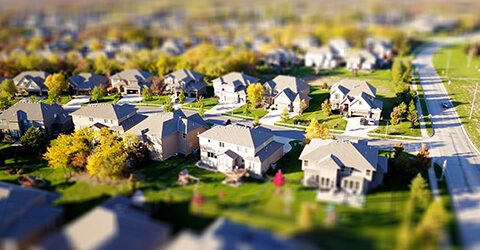The value of gold and shares in the stock market fluctuates with time. They can either increase or decrease. But the one asset that everybody can truly bank on is real estate. Over the past few years, the real estate market has boomed to new heights. Even with the disruptions caused due to the pandemic, real estate investors and realtors have seen a major rebound in sales. The long lockdown shifted people’s perspective on the importance of permanent housing and transformed the realty sector into a hot-selling buyer’s market.
According to economists at Goldman Sachs, home prices in the U.S. will grow 16% further by the end of 2022, and they are currently up 20% year-on-year. Across the globe, real estate investment firm CBRE Group states that average residential property prices in Dubai rose 4.4% in the past 12 months, making it the highest annual growth since February 2015.
Whether you’re a realtor, property owner or someone interested in diving into the real estate market it is important to note that just like every other industry, the world of real estate is adapting and growing according to changes around it. Here are the top 5 trends transforming the real estate industry in 2021
- Real Estate Growth In Suburban Areas
A new wave of potential homeowners is ready to enter the market over the course of the next few years— millennials. With a majority of millennials in their early 30s, they are now ready to take the next step as property owners. Unfortunately, due to recent unemployment and higher-priced home sales, the demand for lower-priced homes has greatly increased. According to PWC’s Real Estate Trend report, the pandemic has led prospective real estate buyers to turn their focus away from the tiny, cramped apartments in expensive downtown markets to larger homes in rural and suburban areas. New millennial families prefer investing a smaller chunk of their savings in larger new homes that will offer them higher resale options in the future than a smaller apartment that’s significantly more expensive.
2. Workplace Changes
COVID-19 created a shift in various sectors of the economy, mainly in the way that businesses run. Companies had to adapt to the sudden quarantines and mandatory lockdowns that were taking place world over. In an attempt to keep their work running smoothly, businesses switched to a work from home model that continues to be followed even as countries resume normalcy. With numerous companies still operating in a work from home setup and some making it a permanent choice, people are looking for larger apartments. “As soon as the lockdown was lifted, we have seen an increase in demand for bigger spaces as customer behaviours have been drastically impacted by the pandemic. Customers earlier looking for apartments in the city, have now shifted to focus towards having bigger spaces as the home is now also your office, your gym and your personal study as well,” says Dounia Fadi, one of the top Real Estate Leaders in the UAE.
3. Co-Working Spaces
Since work from home has rapidly become the new norm, several businesses have opted to cancel their renting leases to save costs. For employees who struggle to work from home and are in desperate need of some peace and quiet, co-working spaces are the perfect refugee. This new market demand has given birth to an increase in co-working spaces in metropolitan cities and smaller towns. “There has never been a time where many people could work from anywhere, as we have right now, and where many people want to and realize they can work from anywhere,” says John Trougakos, an associate professor of organizational behaviour and HR management at the University of Toronto. “That really gives these co-working space companies a leg up compared to prior to the pandemic, when there was a smaller niche of people doing this.”
From increased demand in suburban areas to co-working spaces and preference for larger ready-made housing options, each of these trends are changing the landscape of the real estate market. To conclude, as business mogul Tamir Sapir once said, “If you’re not going to put money in real estate, where else?”







